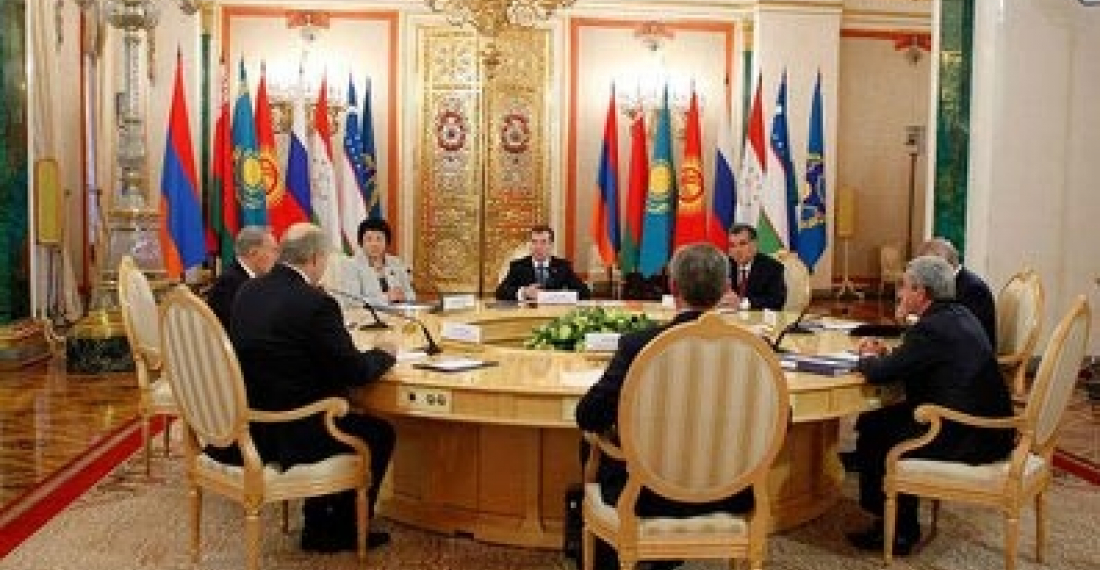19 декабря в Москве состоится заседание с участием Совет министров иностранных дел, совет министров обороны и комитета секретарей советов безопасности, государств-членов Организации Договора о коллективной безопасности. Об этом АрмИнфо сегодня сообщил пресс-секретарь Организации Владимир Зайнетдинов.
На заседании будет рассмотрена повестка дня очередной сессии Совета коллективной безопасности ОДКБ, проекты документов по развитию системы кризисного реагирования, повышения эффективности военного сотрудничества, реализации договоренностей, достигнутых на неформальной встрече глав государств-членов ОДКБ в Астане 12 августа. Также будет рассмотрен план мероприятий, посвященных 20-летию подписания ДКБ и десятилетию создания ОДКБ.
Членами сформированной на основе подписанного 15 мая 1992 года Договора о коллективной безопасности, Организации Договора о коллективной безопасности являются Россия, Армения, Беларусь, Казахстан, Узбекистан, Таджикистан и Кыргызстан. В текущем году председателем ОДКБ является Беларусь. В 2012 году председательство в Организации Договора о коллективной безопасности перейдет к Казахстану.







